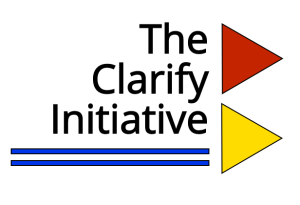Introduction
What makes us human? What differentiates us from animals? Anthropologists, philosophers, and neuroscientists have contemplated this question for centuries. There are many competing theories, but two of the most compelling ones are language and social structure. Humans are characteristically different from animals because of the complexity of language they have developed in order to communicate. Unlike animal communication systems, human language has particular qualities like displacement (we can talk about times and places not present), arbitrariness (most words are not iconic, e.g. the relationship of the sound of a word is normally only arbitrarily related to what it means), and productivity (we can invent new words and say things that have never been said before). These qualities have played key roles in helping us communicate and coordinate with one another, leading over time to highly complex social structures and nothing less than culture itself.
Module preview questions
How is language used to convince or persuade people to do or believe something? Who uses it strategically in this way, and why? In what media?
2. Language, Society, & Power
Power is a key ingredient to the glue that binds human societies, although its uneven application or unbalanced use can also contribute to them breaking. In very simple terms, power is simply the ability of an individual or a group of individuals to act as they wish, and exercising power involves acting influencing others in a manner in accordance with those wishes – doing what you want and making others do so too. Exercising power may as simple as a parent making their child go to bed or as complex as an authoritarian government censoring the Internet and restricting its citizens from accessing outside information, as in contemporary China, Russia, or Iran. Some argue that in many modern capitalist societies like the USA, factors like race, gender, and the economic class into which an individual is born have a great impact on how much and what kind of power is ascribed to them, even greater than their personal choices and achievements. What do you think?

All human societies are held together by varying levels of power dynamics, but in democratic and egalitarian societies, a single group of people does not have absolute power over another group of people – in theory anyway. Rather, what exists is a highly complex web of negotiated power relations, where in some moments individuals and groups exert various sorts of power over others while in other moments, they have power exerted over them. Because of differing value structures, the exercise of power isn’t always either 100% good or bad; greed and desire for dominance may motivate some to wield power, but power as a means to enable peace and enact justice may motivate others. Sometimes, however, the results of the exercise of power are difficult to predict, and some may be unintended. Power is volatile, to say the least.
2. Activity: Is power good or bad?
a. Try this activity and read the article to learn more:
https://elawtalk.com/democracy-vs-authoritarianism/
b. Lord Acton Smith of Great Britain said in 1907: “Power tends to corrupt, and absolute power corrupts absolutely. Great men are almost always bad men, even when they exercise influence and not authority”. Do you agree? What is the danger of power?
c. Take a look at the various quotes at this website and choose one that resonates with you: https://www.brainyquote.com/topics/power-quotes. Why do you find it interesting or meaningful?
3. Power ↔ Language
How is power exercised? Language plays a key role in enabling humans to exercise power over other humans, especially when that power is not physical. Whenever we use language, we essentially encode reality, or a slice of it and pass it onto others. The specific ways in which we do this encoding reflects our value systems and wishes, our positionality. This in turn presents a perspective on reality to whomever we communicate with, whether we intend it to or not, possibly influencing their perception and altering their behavior to align with our perspective — we convince, persuade, align, and argue even if we are not actively aware that we are doing so. Traditional rhetoricians noted that we can influence others by appealing to logos – logical reasoning, pathos – emotional response, and ethos – trust building, but in practice the exercise of power through language is quite complex.

Individuals and groups of people, often through means of governmental, industrial, and media organizations, may exercise power to control others through the use of language. Commercial businesses and corporations, for example, may try to influence consumers to purchase or subscribe to their products and services by means of advertising, much of which uses language. While these agents develop promotional messages using techniques that may appeal to logic, emotion, or trust, they may also use more sophisticated language power techniques akin to propaganda – information that deliberately promotes a particular perspective, regardless of its veracity. Historically, propaganda has been used by governments to promote particular behaviors and align individual to group or official perspectives, for example, during wartime to rally a populace around a cause and support a collective war effort. It may be distributed through physical media like posters, signs, mailings, and flyers; electronic media like emails, texts, social media memes and posts, podcasts, and websites; and traditional media like newspapers, television news, commercials, public service announcements, infotainment, or radio/talk programs. It may be obvious or it may be hidden behind more benign-appearing messaging.
Many have argued that with the advent of the Internet and social media, misinformation – false information that is unintentionally spread – is more easily spread than ever, thanks to the phenomenon of virality and because much of the Internet is not fact-checked or edited like most printed materials are. Sometimes that information is intentionally false, which makes it disinformation, a.k.a. ‘fake news’. Vulnerable individuals may believe this disinformation because it uses propaganda and language power techniques and spread it further. Without necessarily realizing it, they adopt the worldviews and ideologies of the original authors and promoters — political, cultural, and corporate forces who may not have their best intentions in mind.
3. Activity: Propaganda, mis-, and disinformation
a. What do you think of when you hear the word ‘propaganda’? Who do you think produces it and why? What makes it effective? ineffective?
b. Watch this video on ‘Fake News’ by Global News, a Canadian news organization. After watching, discuss or reflect on the questions that follow.
https://www.youtube.com/watch?v=8fQdzVbQlaU
Questions:
Who spreads misinformation, and why? disinformation? How does misinformation become disinformation? How can we be aware of both, and how can we stop them?
Last updated: 5 December 2022
This independent module is from Critical Language Awareness: Language Power Techniques and English Grammar, an open educational resource offered by the Clarify Initiative, a privately funded project with the goal of raising critical language awareness and media literacy among students of language and throughout society.


Information that deliberately promotes a particular perspective, regardless of its veracity.
Information that is not true or partially untrue. Misinformation may be unintentional, unlike disinformation, which is purposeful.
Information that is purposefully false and meant to mislead or deceive, sometimes equated with propaganda. Recently it's been called "fake news".

